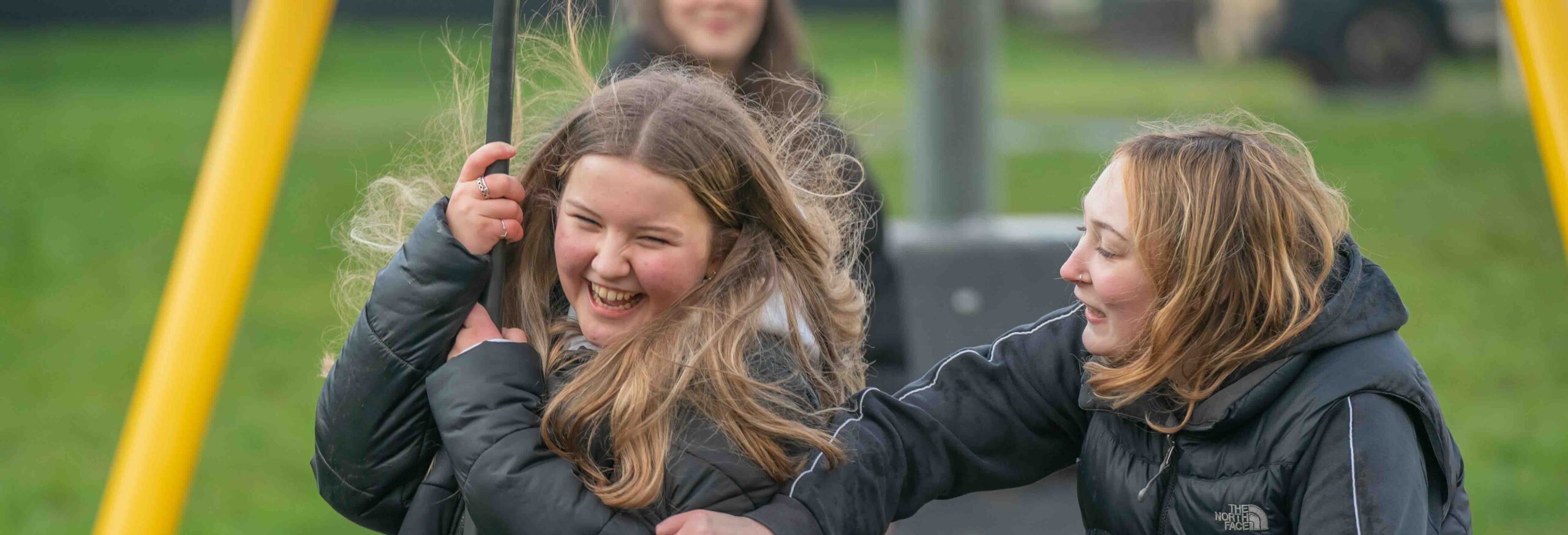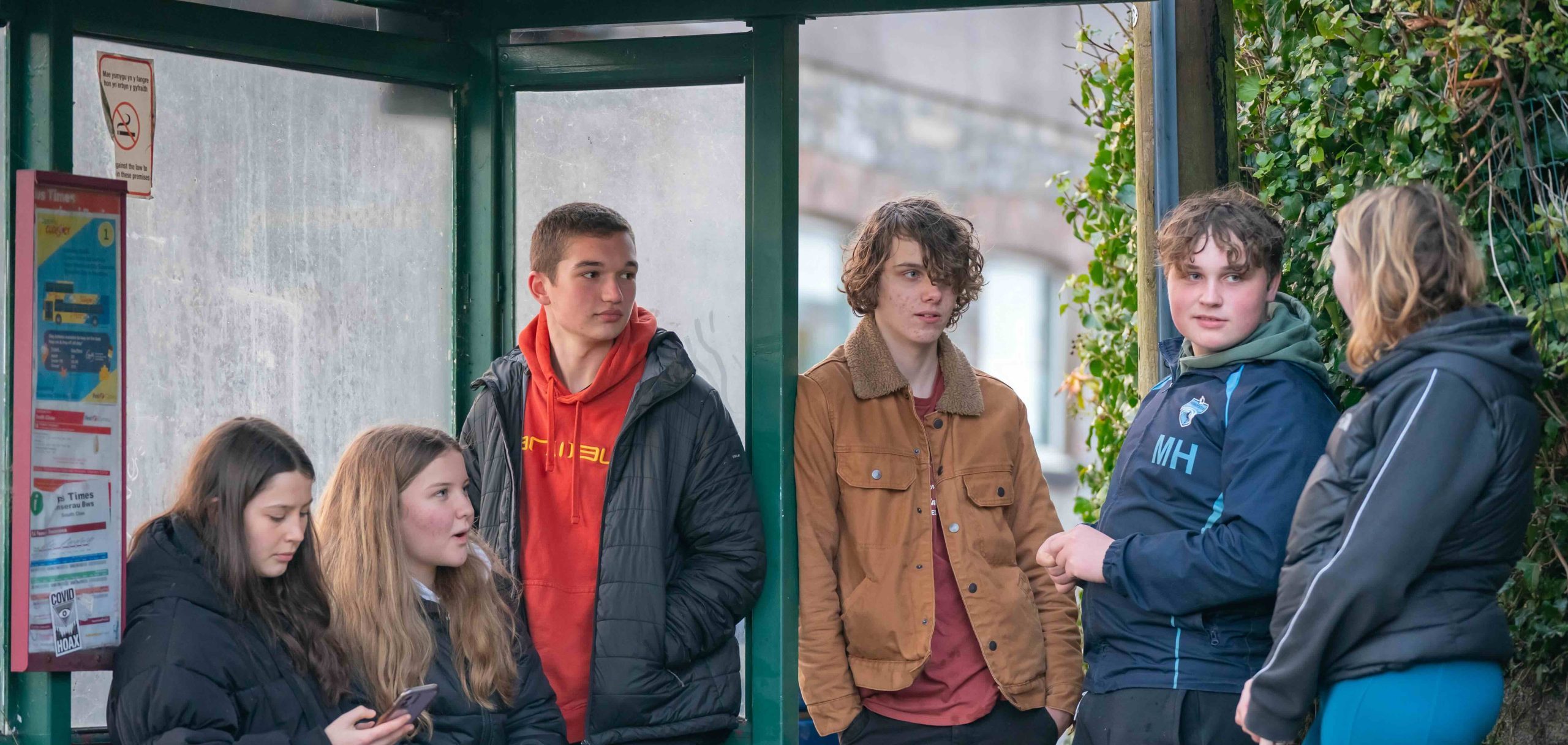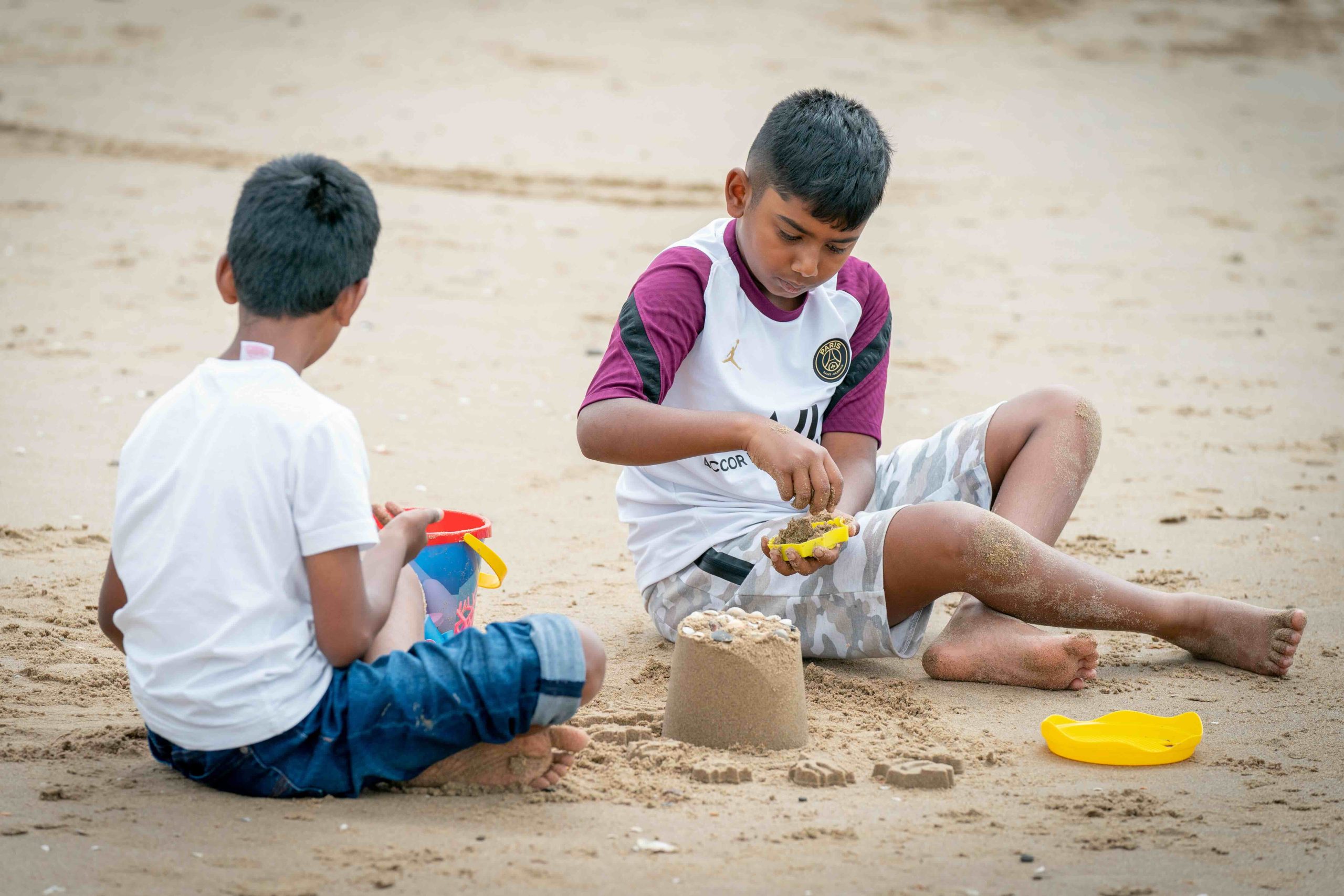All about play
Sticking up for teenagers
Teenagers don’t always get a good press. They are often the subject of discussion locally and in forums such as residents’ associations or community groups. You might notice a mixture of positive and negative stories about teenagers in your local newspapers and social media. As the parent or carer of a teenager you’re in a good position to be on their side.
How teenagers are portrayed has an impact on everyone
Although teenagers are as diverse a group as any other part of the population, they sometimes get lumped together as one group or blamed for things they don’t have much control over. Derogatory words like ‘yobs’, ‘thugs’ and ‘hoodies’ can be found in headlines on and offline.
Unfortunately, portraying teenagers in this way has a negative affect overall, encouraging stereotypes and people to be fearful of each other. This can include teenagers feeling wary of other teenagers they don’t know.
More balanced and realistic portrayals of teenagers that show them as ordinary members of our community has wider benefits.
- People feeling less fearful and more willing to get to know each other.
- Adults being more likely to see the positives in teenagers.
- Teenagers feeling more confident to socialise with others.
- Teenagers being more welcome in public places.
As a parent or carer of a teenager, the impact of negative stereotypes can be frustrating or annoying. However, there are lots of ways to stick up for teenagers.
Having teenagers in your life gives you insights into the issues and challenges they face and some of the brilliant things they do.
Five ways to stick up for teenagers
Help create positive ripples about teenagers on social media
- Share a simple thanks or acknowledgement of a positive action by teenagers on your own social media or in an online group.
- Give an example you have noticed, for example, ‘It was so nice to see two local teenagers helping an older gentleman who was struggling with his shopping today at the supermarket. Well done!’
- Reshare positive stories about teenagers.
- Look for opportunities to comment on or ‘like’ other people’s stories or posts which show the kind, compassionate and courageous sides of teenagers.
Offer a different point of view
- Share a more positive story (of your own or from the press of social media) if you hear all teenagers being lumped together in a negative way.
- Remind people that teenagers are growing up in a world that is different from the world older adults grew up.
- Try a phrase such as ‘Another way of thinking about that would be…’ to turn a conversation in a more positive direction. For example, ‘Another way of thinking about teenagers hanging about in the street is that they feel safer there because it is well lit and there are lots of people around’.
- Share the views you’ve heard from teenagers about an issue or situation. For example, ‘My teenage son told me his friends feel quite unhappy about that situation too and have ideas about how to sort it out.’
Reminisce
- Build empathy for teenagers by chatting to people about their teenage years, the things they and their friends got up to and the challenges they faced.
- Have a sense of humour – a well-timed remark such as ‘I wouldn’t like to say what I got up to at that age!’ can remind people that teenage misdeeds are common across generations.
- Encourage your teenager to chat with older relatives or neighbours about their upbringing and find out the things they have in common or that surprise them
Share some things to think about
- Point out that the media tends to highlight the negative stories about teenagers but that they overlook the ordinary things teenagers are doing as they get on with life.
- Offer some brain science. Teenage brains, including the bits needed for decision making and planning, are going through an important stage of change and development. We all need to go through this stage on our way to becoming independent adults.
- Consider the impact of technology on teenagers’ lives. We often worry about the positives and negatives but perhaps less often on how incredible teenagers are at communicating in creative ways with technology at their fingertips.
- Remind people we all make mistakes and maybe share some of your own. Teenagers make mistakes too
Support teenagers’ campaigns
- Add your voice to local campaigns for facilities such as skateparks and spaces for teenagers to hang out.
- Assist with fundraising for facilities and projects for teenagers.
- Get involved in local youthwork or volunteering projects for teenagers.
- Ask teenagers about the causes that matter to them, for example environment, mental health or education and support them by signing their petitions for example.
- Learn more about children’s rights and human rights conventions such as the United Nations Convention on the Rights of the Child or the Convention on the Rights of Persons with Disabilities.
For more ideas about teenagers sticking up for themselves and for others in their community, have a look at these pages:













